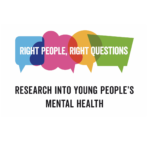
Derek Tracy takes a first look at the Novel Psychoactive Substances in the UK Project; an NIHR-funded empirical and conceptual review that recommends research priorities in the field.
[read the full story...]
Derek Tracy takes a first look at the Novel Psychoactive Substances in the UK Project; an NIHR-funded empirical and conceptual review that recommends research priorities in the field.
[read the full story...]
Today we are announcing a major new survey that will help prioritise research questions for young people’s mental health over the coming years. The Right People, Right Questions project is about looking for your unanswered questions on young people’s mental health that can be answered by research. We want to hear from 11-25 year olds with experience of mental health issues, their parents or carers, if you work with young people, or if you have another interest in the mental health of young people.
[read the full story...]
Michael Ostacher provides some context and ideas for the JoinMQ conference on research priorities for bipolar disorder, which is taking place in London on 9-10 November 2015.
[read the full story...]
Lucy Simons summarises a recent study of treatment research priorities, which concludes that research on drugs is preferred by researchers, but evaluation of non-drug treatments is preferred by patients and clinicians.
[read the full story...]
Chris Sampson reports on a recent systematic review and critical appraisal of economic evaluations in bipolar disorder. He finds that there’s a pressing need for new studies, especially discrete event simulations.
[read the full story...]
An international group of more than 400 mental health experts have identified 25 top research priorities which promise to improve the lives of people with mental, neurological, and substance-use disorders. The Grand Challenges in Global Mental Health Initiative was organised by the US National Institutes of Health and the Global Alliance for Chronic Diseases. Experts [read the full story…]